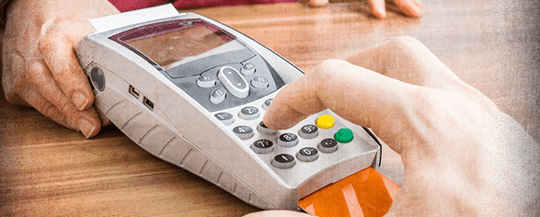A Cautionary Tale From a Baltimore Cafe
Today’s reckoning takes us past another waystation on the road to the cashless society…
The Park Cafe & Coffee Bar is a small affair in our charming city of Baltimore. And it was robbed five times between October and January. Go ahead, roll your eyes. It’s Baltimore, after all.
But the Park Cafe & Coffee Bar stands proudly in the upmarket section of Bolton Hill. It’s a leafy neighborhood. Quiet. The sidewalks run to old red brick. F. Scott Fitzgerald kept quarters here in the 1930s.

Bolton Hill
But as of this week, the Park Cafe & Coffee Bar no longer accepts cash. It’ll only accept digital payment. No card, no joe.
The formula’s simple enough, the logic unassailable — no cash to rob, no robbers to rob it.
Now, the Park Cafe & Coffee Bar is just one small shop in a faded, midsized American city known more for its murder rate than even its crab cakes. But we tell the tale of the Park Cafe & Coffee Bar because it represents a broader trend. It’s a signpost, a portent of the coming cashless society…
Who will argue that cash is more convenient than plastic? Or safer?
With plastic, you never run short of cash. You never need to visit the ATM. You don’t need a penny jar to handle your change… or to ransack the couch for that spare quarter. Plastic is easier on a hundred counts.
And no one’s going to knock off a liquor store… or bank… if there’s no cash to steal. Say goodbye to the Brink’s truck too. Eliminate cash and there’s no need to transport heaps of cash around. Or hire security guards to protect them.
And that’s how elites will peddle it…
“See how inconvenient cash is? And how dangerous? Going digital solves all those problems,” will be the siren call. “It could practically eliminate petty crime, free up resources and save forests of trees into the bargain.”
Besides, they wail, cash is the currency of terrorism, of organized crime, of drug dealers. Not for nothing was the 500 euro note called the “Bin Laden.” That made it easier to abolish. Which the European Central Bank did.
So not only is cash inconvenient, they argue… it’s a blackguard’s money. It wars against civilization itself. And besides the terrorists and organized crime and drug dealers… how many tax scofflaws are getting a free ride in the underground cash economy? While you pay full freight and then some.
All these arguments and more they will make. The process is well under way: Consumercredit.com reports that 80% of consumers are already using debit or credit cards for common purchases like gas, meals and groceries.
“‘In a couple of years,’” warns analyst Norbert Haering to the Financial Sense website, “‘it really could become quite difficult to use cash in the way you did five years ago,’ especially if you are labeled as a criminal for doing so.”
So it would seem. But you’d probably be better off focusing on what the elites won’t tell you about the cashless society…
It’s true, in a cashless world you might not get robbed by some footpad in the street. But you might get robbed by some miscreant halfway ’round the world.
If all your wealth is stored digitally, it’s vulnerable to hackers and other no-good types. At a keystroke, a hacker could erase your entire life savings.Vladimir Putin is out there!
Consulting firm Juniper Research says the cost of online data breaches is already expected to reach $2.1 trillion by 2019. In a cashless world, it could skyrocket. Today you could still stow your cash in a safe or a bank. In a cashless world, where do you hide your money?
Cash is in many ways the money of freedom. It’s anonymous. Bankers can’t monkey it. And that’s exactly why they want it dead.
With digital money, you lose the freedom to store wealth outside the banking system. It makes negative interest rates a reality. You are powerless to fight back. And you’re on the hook for any “bail-in” your bank requires. You are an electronic prisoner of the banks.
All this may seem remote from the Park Cafe & Coffee Bar in Baltimore. But there are thousands of examples just like it around the country, going cashless out of safety or convenience. There will be more next year… and the year after. There’s no point in having cash if no one accepts it.
That’s how cash will probably die in America. Not so much because it’s illegal…
But because it’s impractical.
Regards,
Brian Maher
Managing editor, The Daily Reckoning



Comments: